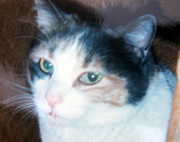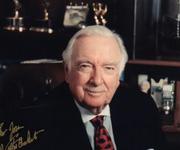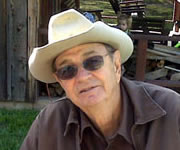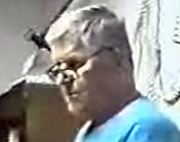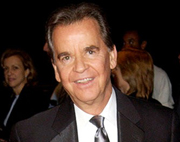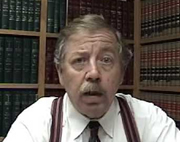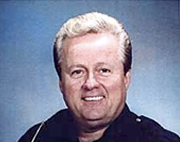Swine flu vaccine linked to killer nerve disease!
LONDON, England - August 15, 2009 - A warning that the new swine flu jab is linked to a deadly nerve disease has been sent by the British government to senior neurologists in a confidential letter.
The letter from the Health Protection Agency, the official body that oversees public health, was leaked to The Mail on Sunday, leading to demands to know why the information has not been given to the public before the vaccination of millions of people, including children, begins.
It tells the neurologists that they must be alert for an increase in a brain disorder called Guillain-Barre Syndrome (GBS), which could be triggered by the vaccine.
GBS attacks the lining of the nerves, causing paralysis and inability to breathe, and can be fatal.
The letter, sent to about 600 neurologists on July 29, is the first sign that there is concern at the highest levels that the vaccine itself could cause serious complications.
It refers to the use of a similar swine flu vaccine in the United States in 1976 when:
The letter from the Health Protection Agency, the official body that oversees public health, was leaked to The Mail on Sunday, leading to demands to know why the information has not been given to the public before the vaccination of millions of people, including children, begins.
It tells the neurologists that they must be alert for an increase in a brain disorder called Guillain-Barre Syndrome (GBS), which could be triggered by the vaccine.
GBS attacks the lining of the nerves, causing paralysis and inability to breathe, and can be fatal.
The letter, sent to about 600 neurologists on July 29, is the first sign that there is concern at the highest levels that the vaccine itself could cause serious complications.
It refers to the use of a similar swine flu vaccine in the United States in 1976 when:
- More people died from the vaccination than from swine flu.
- 500 cases of GBS were detected.
- The vaccine may have increased the risk of contracting GBS by eight times.
- The vaccine was withdrawn after just ten weeks when the link with GBS became clear.
- The U.S. government was forced to pay out millions of dollars to those affected.
Concerns have already been raised that the new vaccine has not been sufficiently tested and that the effects, especially on children, are unknown.
It is being developed by pharmaceutical companies and will be given to about 13 million people during the first wave of immunizations, expected to start in October.
Top priority will be given to everyone aged six months to 65 with an underlying health problem, pregnant women, and health professionals.
The British Neurological Surveillance Unit (BNSU), part of the British Association of Neurologists, has been asked to monitor closely any cases of GBS as the vaccine is rolled out.
One senior neurologist said last night, “I would not have the swine flu jab because of the GBS risk.”
There are concerns that there could be a repeat of what became known as the “1976 debacle” in the United States, where a swine flu vaccine killed 25 people - more than the virus itself.
A mass vaccination was given the go-ahead by then President Gerald Ford because scientists believed that the swine flu strain was similar to the one responsible for the 1918-19 pandemic, which killed half a million Amerikans and 20 million people worldwide.
Within days, symptoms of GBS were reported among those who had been immunized and 25 people died from respiratory failure after severe paralysis. One in 80,000 people came down with the condition. In contrast, just one person died of swine flu.
More than 40 million Amerikans had received the vaccine by the time the program was stopped after ten weeks. The U.S. government paid out millions of dollars in compensation to those affected.
The swine flu virus in the new vaccine is a slightly different strain from the 1976 virus, but the possibility of an increased incidence of GBS remains a concern.
Shadow health spokesman Mike Penning said last night, “The last thing we want is secret letters handed around experts within the NHS. We need a vaccine but we also need to know about potential risks. Our job is to make sure that the public knows what’s going on. Why is the government not being open about this? It’s also very worrying if GPs, who will be administering the vaccine, aren’t being warned.”
Two letters were posted together to neurologists advising them of the concerns. The first, dated July 29, was written by Professor Elizabeth Miller, head of the HPA’s Immunization Department.
It says, “The vaccines used to combat an expected swine influenza pandemic in 1976 were shown to be associated with GBS and were withdrawn from use. GBS has been identified as a condition needing enhanced surveillance when the swine flu vaccines are rolled out.
“Reporting every case of GBS irrespective of vaccination or disease history is essential for conducting robust epidemiological analyses capable of identifying whether there is an increased risk of GBS in defined time periods after vaccination, or after influenza itself, compared with the background risk.”
The second letter, dated July 27, is from the Association of British Neurologists and is written by Dr. Rustam Al-Shahi Salman, chair of its surveillance unit, and Professor Patrick Chinnery, chair of its clinical research committee.
It says, “Traditionally, the BNSU has monitored rare diseases for long periods of time. However, the swine influenza (H1N1) pandemic has overtaken us and we need every member’s involvement with a new BNSU survey of Guillain-Barre Syndrome that will start on August 1 and run for approximately nine months. Following the 1976 program of vaccination against swine influenza in the U.S., a retrospective study found a possible eight-fold increase in the incidence of GBS. Active prospective ascertainment of every case of GBS in the UK is required. Please tell BNSU about every case.
“You will have seen press coverage describing the government’s concern about releasing a vaccine of unknown safety.”
If there are signs of a rise in GBS after the vaccination program begins, the government could decide to halt it.
GBS attacks the lining of the nerves, leaving them unable to effectively transmit signals to muscles.
It can cause partial paralysis and mostly affects the hands and feet. In serious cases, patients need to be kept on a ventilator, but it can be fatal.
Death is caused by paralysis of the respiratory system, causing the victim to suffocate.
It is not known exactly what causes GBS and research on the subject has been inconclusive.
However, it is thought that one in a million people who have a seasonal flu vaccination could be at risk and it has also been linked to people recovering from a bout of flu of any sort.
The HPA said it was part of the government’s pandemic plan to monitor GBS cases in the event of a mass vaccination campaign, regardless of the strain of flu involved. But vaccine experts warned that the letters proved that the program was a “guinea-pig trial”.
Dr. Tom Jefferson, co-ordinator of the vaccines section of the influential Cochrane Collaboration, an independent group that reviews research, said, “New vaccines never behave in the way you expect them to. It may be that there is a link to GBS, which is certainly not something I would wish on anybody. But it could end up being anything because one of the additives in one of the vaccines is a substance called squalene, and none of the studies we’ve extracted have any research on it at all.”
He said squalene, a naturally occurring enzyme, could potentially cause so-far-undiscovered side effects.
Jackie Fletcher, founder of vaccine support group Jabs, said, “The government would not be anticipating this if they didn’t think there was a connection. What we’ve got is a massive guinea-pig trial.”
Professor Chinnery said, “During the last swine flu pandemic, it was observed that there was an increased frequency of cases of GBS. No one knows whether it was the virus or the vaccine that caused this. The purpose of the survey is for us to assess rapidly whether there is an increase in the frequency of GBS when the vaccine is released in the UK. It also increases consultants’ awareness of the condition.
“This is a belt-and-braces approach to safety and is not something people should be substantially worried about as it’s a rare condition.”
If neurologists do identify a case of GBS, it will be logged on a central database.
Details about patients, including blood samples, will be collected and monitored by the HPA.
It is hoped this will help scientists establish why some people develop the condition and whether it is directly related to the vaccine.
But some question why there needs to be a vaccine, given the risks. Dr. Richard Halvorsen, author of The Truth About Vaccines, said, “For people with serious underlying health problems, the risk of dying from swine flu is probably greater than the risk of side effects from the vaccine. But it would be tragic if we repeated the U.S. example and ended up with more casualties from the jabs.
“I applaud the government for recognizing the risk but in most cases this is a mild virus which needs a few days in bed. I’d question why we need a vaccine at all.”
Professor Miller at the HPA said, “This monitoring system activates pandemic plans that have been in place for a number of years. We’ll be able to get information on whether a patient has had a prior influenza illness and will look at whether influenza itself is linked to GBS. We are not expecting a link to the vaccine but a link to disease, which would make having the vaccine even more important.”
The UK’s medicines watchdog, the Medicines and Healthcare Products Regulatory Agency, is already monitoring reported side effects from Tamiflu and Relenza and it is set to extend that surveillance to the vaccine.
A Department of Health spokesperson said, “The European Medicines Agency has strict processes in place for licensing pandemic vaccines. In preparing for a pandemic, appropriate trials to assess safety and the immune responses have been carried out on vaccines very similar to the swine flu vaccine. The vaccines have been shown to have a good safety profile.
“It is extremely irresponsible to suggest that the UK would use a vaccine without careful consideration of safety issues. The UK has one of the most successful immunization programs in the world.”
When Hilary Wilkinson woke up with muscle weakness in her left arm and difficulty breathing, doctors initially put it down to a stroke.
But within hours, she was on a ventilator in intensive care after being diagnosed with Guillain-Barre Syndrome.
She spent three months in hospital and had to learn how to talk and walk again. But at times, when she was being fed through a drip and needed a tracheotomy just to breathe, she doubted whether she would survive.
The mother of two, 57, from Maryport, Cumbria, had been in good health until she developed a chest infection in March 2006. She gradually became so weak she could not walk downstairs.
Doctors did not diagnose Guillain-Barre until her condition worsened in hospital and tests showed her reflexes slowing down. It is impossible for doctors to know how she contracted the disorder, although it is thought to be linked to some infections.
Mrs. Wilkinson said, “It was very scary. I couldn’t eat and I couldn’t speak. My arms and feet had no strength and breathing was hard. I was treated with immunoglobulin, which are proteins found in blood, to stop damage to my nerves. After ten days, I still couldn’t speak and had to mime to nurses or my family. It was absolutely horrendous and I had no idea whether I would get through it. You reach very dark moments at such times and wonder how long it can last. But I’m a very determined person and I had lots of support.”
After three weeks, she was transferred to a neurological ward, where she had an MRI scan and nerve tests to assess the extent of the damage.
Still unable to speak and in a wheelchair, Mrs. Wilkinson eventually began grueling physiotherapy to improve her muscle strength and movement but it was exhausting and painful.
Three years later, she is almost fully recovered. She can now walk for several miles at a time, has been abroad and carries out voluntary work for a GBS Support Group helpline.
She said, “It makes me feel wary that the government is rolling out this vaccine without any clear idea of the GBS risk, if any. I wouldn’t wish it on anyone and it certainly changed my life. I’m frightened to have the swine flu vaccine if this might happen again - it’s a frightening illness and I think more research needs to be done on the effect of the vaccine.”
Confidential NHS staff records and disciplinary complaints could be accessed by hundreds of workers manning the government’s special swine flu hotline.
They were able to browse through a database of emails containing doctors’ and nurses’ National Insurance numbers, home addresses, dates of birth, mobile phone numbers, and scanned passport pages - all details that could be used fraudulently.
Private and confidential complaints sent by hospitals about temporary medical staff - some of whom were named - were also made available to the call-center workers, who were given a special password to log in to an internal NHS web site.
It could be a breach of the Data Protection Act.
The hotline staff works for NHS Professionals, which was set up using taxpayers’ money to employ temporary medical and administrative staff for the health service.
The not-for-profit company runs two of the government’s swine flu call centers - with 300 staff in Farnborough, Hampshire, and 900 in Watford, Hertfordshire.
Shadow Health Secretary Andrew Lansley described the revelations as “disturbing”.
Anne Mitchell, a spokeswoman for Unison, said, “There’s no excuse for such a fundamental breach of personal security. Action needs to be taken as soon as possible to make sure this does not happen again.”
A spokeswoman for NHS Professionals would not confirm whether access to the confidential files had been granted.


